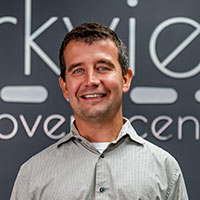 Cocaine is a highly addictive substance, and for those who find themselves struggling to stop using it, getting substance abuse treatment is the best option. Addiction is a complex condition that has many causes, and most people need help to quit using cocaine. However, looking for a cocaine use rehab program can be challenging, and you may have lots of questions. Taking some time to learn more about cocaine addiction treatment can help you make informed decisions about recovery care for yourself or a loved one.
Cocaine is a highly addictive substance, and for those who find themselves struggling to stop using it, getting substance abuse treatment is the best option. Addiction is a complex condition that has many causes, and most people need help to quit using cocaine. However, looking for a cocaine use rehab program can be challenging, and you may have lots of questions. Taking some time to learn more about cocaine addiction treatment can help you make informed decisions about recovery care for yourself or a loved one.
Cocaine Addiction: Things You Should Know
Cocaine use is often portrayed in the media, so most people have at least some concept of what cocaine is and how it is used. However, here are some things you may not know about cocaine and addiction:
- Even though cocaine has a reputation as a party drug, it is not only an attraction for younger adults only. Cocaine abuse and addiction can happen to anyone at any age.
- Reports of cocaine overdoses are increasing, possibly because of the addition of synthetic opioids and other toxic substances.
- In addition to addiction, using cocaine for a long time carries a risk of psychiatric problems as well as serious physical health problems and even increased chances of death.
- Cocaine users are at a higher risk of contracting HIV and hepatitis because cocaine impairs judgment and decision-making, leading users to engage in high-risk behavior.
What Happens During Cocaine Addiction Treatment
It can be scary to face the fact that you or a loved one needs treatment for cocaine addiction, but getting treatment can be life-changing and even life-saving. Some of the aspects of treatment are:
Detox
Detox is usually the first step on the recovery journey. During the detox portion of treatment, patients are given medication that can ease the withdrawal process.
Residential treatment
In a residential treatment program, patients who have completed the detox program stay at the treatment center full-time while participating in individual counseling, group therapy, and other activities that are recovery-focused.
Intensive outpatient program (IOP)
IOPs allow patients to receive an intensive level of recovery care while returning to their own residences each evening. This is often a transitional level of care for those who have already completed a residential program.
Outpatient counseling and support groups
For patients who have ‘graduated’ from the intensive portions of addiction treatment, continuing their counseling by attending weekly therapy or support groups such as Narcotics Anonymous helps them stay connected to their support system.
The Benefits of Treatment for Cocaine Addiction
Studies have shown that people who complete an addiction treatment program have the best chance of returning to work, school, and daily life activities. Addiction is not only a physical condition but also has a psychological component. Most people benefit from discovering and processing the root causes of addiction during the treatment program. Families can also get involved as a part of treatment. Having strong family support is a very important component of a person’s recovery.
Arkview Recovery: Supporting You in Your Recovery Journey
At our treatment center just outside of Harrisburg, Pennsylvania, we offer each patient an individualized treatment plan so that they can get the care they need in the way that works best for them. If you or someone that you care about has been struggling with addiction to cocaine, it may seem like nothing could ever improve. However, the good news is that, with the right care and support, recovery is possible. There are millions of Americans living sober, happy lives due to their participation in treatment for addiction. We encourage you to reach out to our caring and compassionate staff today at 717.744.0756.

Kyle is Lead Therapist at Arkview Recovery Center. He holds a Master of Social Work degree from Temple University and is a Licensed Clinical Social Worker. He has years of experience working directly with individuals who suffer from addiction and mental health disorders. Being in long term recovery himself, Kyle is very passionate about the recovery process. He is heavily involved in the local recovery community in which he enjoys his commitments to service and giving back. His specialty is in group therapy and developing clinical staff. Kyle brings to Arkview a holistic approach to recovery, specializing in mindfulness, reality therapy, and solution-focused therapy.
